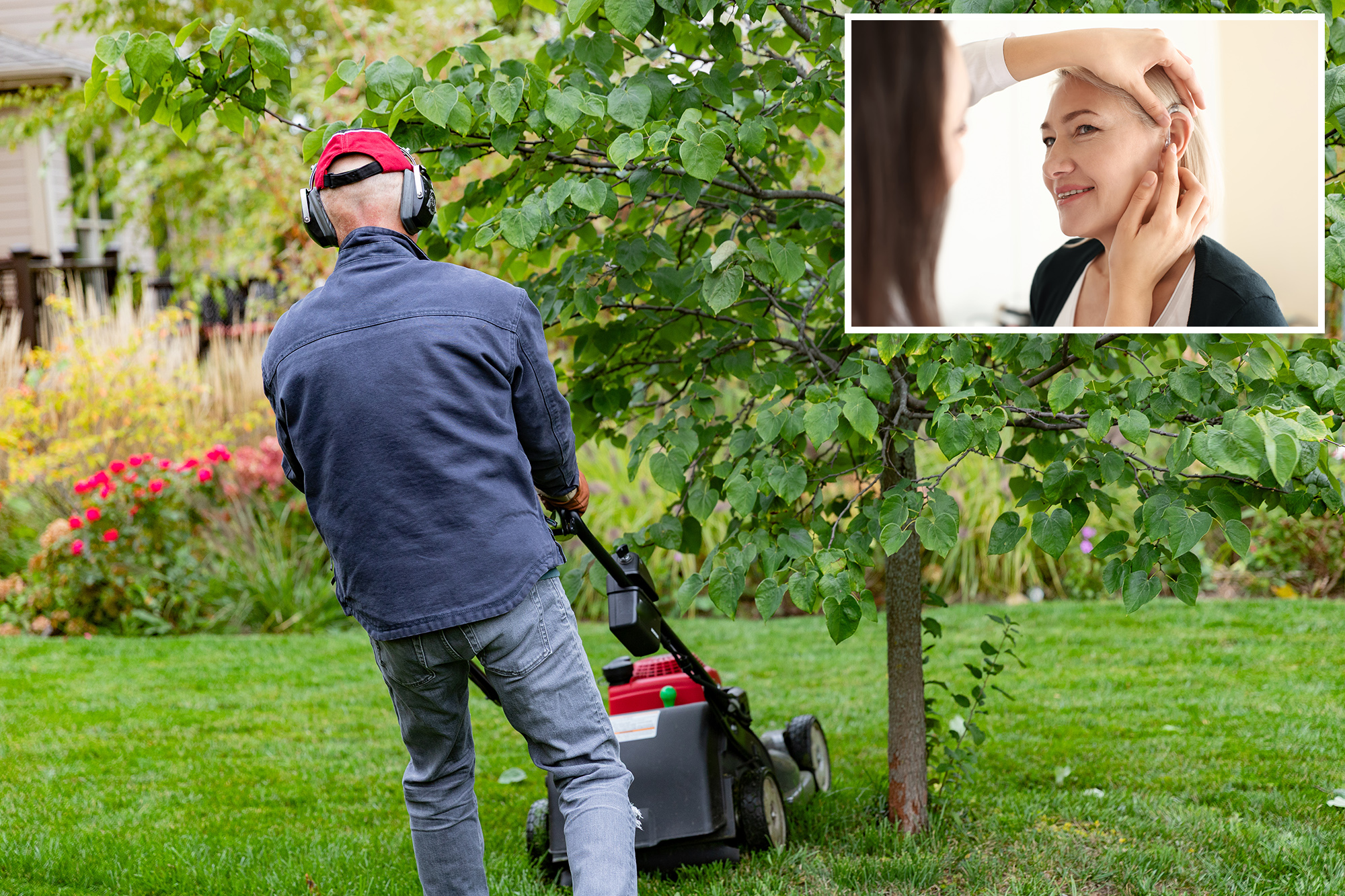
Hearing loss is one of the most common conditions affecting the elderly, with about one in three Americans between 65 and 74 affected, according to the National Institute of Health (NIH).
While some of this loss are due to the hair cells in the internal ears that break down with age and not receiving vibrations as well, for the web, there are some risk factors that can be controlled with behavioral modifications.
Making small changes can now help protect your ears and hear later in life, experts advise.
Below are some practical tips you can start implementing today.
1. Limit exposure to loud noise
Regardless of whether it is a human -filled concert, heavy traffic or constant mood of power tools, repeated exposure to high noise levels is known to cause permanent damage to delicate structures in the inner ear.
One of the most effective ways to protect your hearing while you grow old is to limit your exposure to these environments aloud, says Nih.
Even small adjustments, such as lowering the volume on your headphones or taking quiet breaks during a noisy event, can make a big difference over time.
2. Protect your ears in noisy environments
Damage to the inner ear can occur long before it appears in a hearing test, according to NiH, which means prevention is essential.
When loud situations are inevitable, and you expect to be exposed for more than a few minutes, experts recommend wearing ear protection, such as foam ears or noise -drawing ears.
Foam dresses are an affordable, easy to wear; They reduce noise by 15 to 30 decibels, web states.
Dresses, which cover all wear, offer similar protection and can be worn with ear ear for added protection.
Some ear slaps are created to reduce sound evenly in all frequencies, making them ideal for musicians or anyone who wants clear but quieter audio.
3. Get your regularly controlled session
Like toothbrush or eye exams, regular hearing checks are an important part of maintaining overall health.
The World Health Organization (WHO) recommends that adults aged 50 to 64 years of age will appear from an audiologist every five years.
Hearing exams are especially important for those who have a family history of hearing loss, notice difficulties in listening to conversations, have a high degree of noise exposure, often listening to the ear, or have no previous testing stories.
Your health care provider will assess how well your session works and check for any early sign of hearing loss.
“The examination does not always mean passing a complete hearing test,” said Lindsay Creed, a Maryland audiologist and Associate Director of Audiology Practices at the American Language Facilitation Association (ASHA) for Fox News Digital.
“It can start with some simple questions from your doctor during a routine physical, or even a short questionnaire as a first step.”
4. Avoid smoking
Smoking does not only affect your lungs and heart – it can also damage your hearing.
According to a study conducted by NIH, current smokers are 61% more likely to experience widespread hearing loss compared to non-smokers.
The good news? Departure makes a difference.
Former smokers who left for more than five years reduced their risk almost as low as individuals who have not smoked, the same study was found.
5. Be aware of age -related ear conditions
Although hearing loss is common with age, it is not the only hearing issue.
According to the AARP (American Retired Association), conditions such as tinnitus, which often reaches a peak between the ages of 60 and 69, can also develop. Tinitus causes constant sounds such as bell, rubbing, buzzing or ear cousins.
Most cases are related to sensorineural hearing loss, the type usually occurs with age, notes the American association of Tinnitus.
While there is no cure, various treatments can help reduce the impact of symptoms.
Another condition that becomes the most common with age is the positive paroxysmal benign vertigo (BPPV), which causes short but intense dizziness episodes, according to the Mayo Clinic.
This occurs when small calcium crystals in the inner ear shift abroad.
Audiologist Lindsay Creed noted that head trauma is usually the cause of young people, but in those over 50, age -related natural changes in the inner ear are more likely to be culprit.
Once someone experiences BPPV, future episodes become more likely.
The condition can often be treated with a simple office maneuver performed by a medical professional to reposition the crystals, though Creed advises not to try it at home without instructions.
6. Check medication for harmful effects
Many drugs are known to cause damaged hearing, including some cancer and antibiotic medicines, according to the web.
If you take a prescription medicine, experts recommend checking with your doctor to make sure it does not know how to affect ear health.
#simple #ways #protect #hearing #late
Image Source : nypost.com